
Cuisine
Ivorian cuisine
Ivorian cuisine is characterized by its use of fresh ingredients and bold flavors. The cuisine is heavily influenced by the country's history of colonization and trade, with French and Arabic influences evident in many dishes. The cuisine is known for its use of seafood, vegetables, and spices, and is often served with a side of rice or couscous. The cuisine is also known for its use of peanuts and peanut butter, which are used in many dishes.
Typical ingredients
Seafood (fish, shrimp, crab), Vegetables (eggplant, okra, tomatoes, onions, garlic), Peanuts, Peanut butter, Rice, Couscous, Yams, Plantains, Ginger, Chili peppers
Presentation and garnishing
Ivorian cuisine is often served on a large platter with the main dish in the center and the sides arranged around it. The cuisine is often garnished with fresh herbs and spices, and is served with a side of rice or couscous. The cuisine is also often accompanied by a glass of palm wine or a cold beer.
The cuisine is often served with a side of attiéké, a type of couscous made from cassava. The cuisine is also known for its use of baobab fruit, which is believed to have medicinal properties.
More cuisines from this region...
Nigerian cuisine, Ghanaian cuisine, Senegalese cuisine, Malian cuisine, Benin cuisine, Burkinabé cuisine, Guinean cuisine, Liberian cuisine, Sierra Leone cuisine, Togolese cuisine
History
Ivorian cuisine has a long history dating back to the pre-colonial era. The cuisine has been influenced by the French, who colonized the region in the 19th century, as well as by the Arabic cultures that were brought to the region through trade. The cuisine is an important part of the country's cultural heritage and is often served at festivals and celebrations.
Cultural significance
Ivorian cuisine is an important part of the country's cultural heritage and is often served at festivals and celebrations. The cuisine is also an important part of daily life, with many families gathering around the table to share a meal. The cuisine is also known for its use of spices and herbs, which are believed to have medicinal properties.
Health benefits and considerations
Ivorian cuisine is generally healthy, with a focus on fresh ingredients and seafood. However, the cuisine is also high in fat and calories due to its use of peanuts and peanut butter. People with peanut allergies should be cautious when consuming this cuisine.
Ivorian cuisine dishes

Attiéké
Attiéké is a traditional dish from Côte d'Ivoire made from cassava.
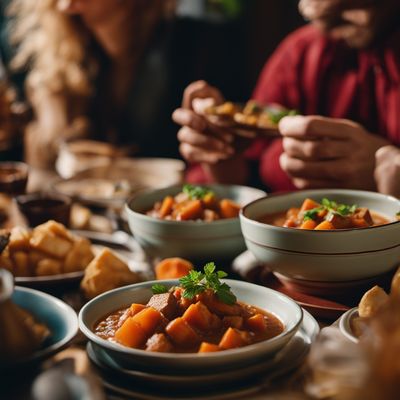
Ragout d'igname
Yam Stew
Ragout d'igname is a traditional Haitian dish made with yams and meat.
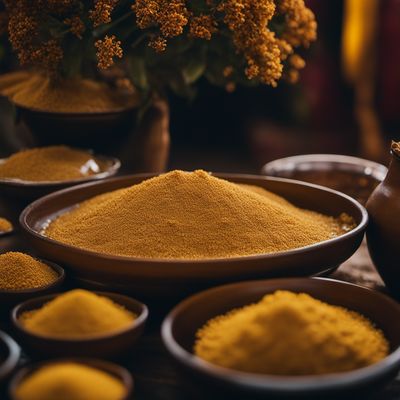
Doukounou
Doukounou is a traditional West African dessert made from millet flour, sugar, and spices. It has a sweet, nutty flavor and a crumbly texture.

Kedjenou
Kedjenou is a traditional Ivorian dish that is perfect for a special occasion. It is a flavorful chicken stew that is slow-cooked with vegetables and spices.
Ivorian cuisine recipes Browse all »
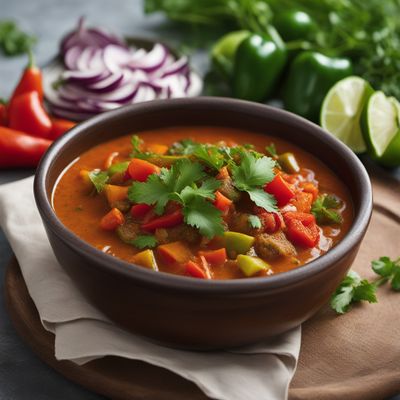
Ivorian Spiced Vegetable Stew
Savory Delight: Ivorian Spiced Vegetable Stew
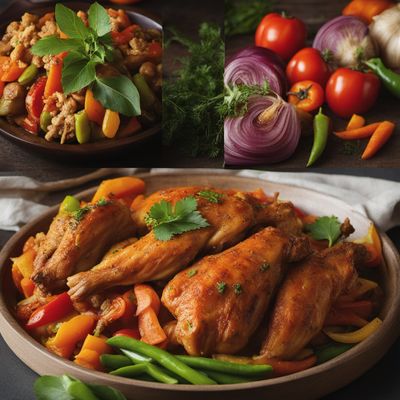
Ivorian Kedjenou with Chicken and Vegetables
Savory African Delight: Ivorian Kedjenou
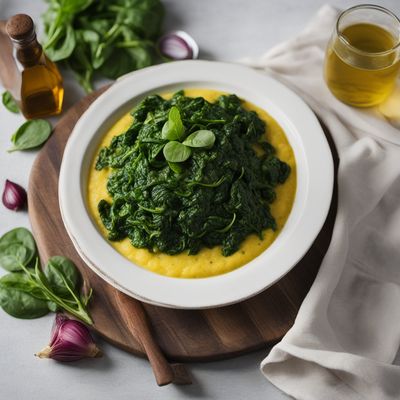
Ivorian-inspired Spinach Polenta
Savory Spinach Delight: Ivorian-inspired Spinach Polenta
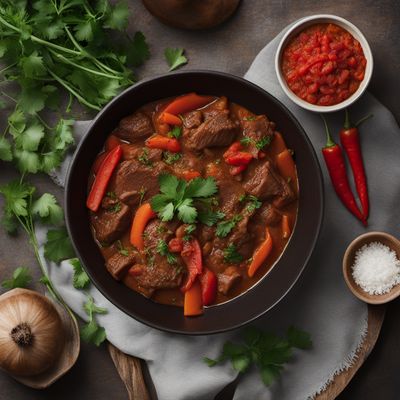
Ivorian Spiced Beef Stew
Savory West African Beef Delight

Ivorian-style Cabbage Stew
Savory Cabbage Delight: A Taste of Ivory Coast
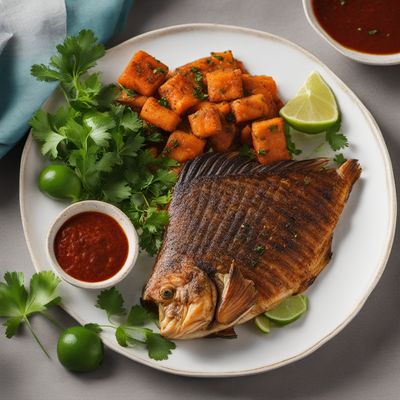
Authentic Ivorian Attiéké with Grilled Fish
Savory Delight: Grilled Fish with Ivorian Attiéké

Ivorian-style Organ Soup
Savory Delight: Ivorian-inspired Organ Soup

Ivorian-style Beef Empanadas
Savory Ivorian Beef Pockets: A Fusion of Flavors

Ivorian-inspired Fresh Vegetable Platter
Savory Delights: A Vibrant Ivorian Vegetable Feast

Ivorian Soufiko with a Twist
Savory Ivorian Vegetable Stew: A Fusion of Flavors

Doukounou with Spiced Peanut Sauce
Savory Ivorian Plantain Fritters with Spiced Peanut Sauce

Ivorian Spiced Honey Cookies
Savory Delights: Ivorian Spiced Honey Cookies